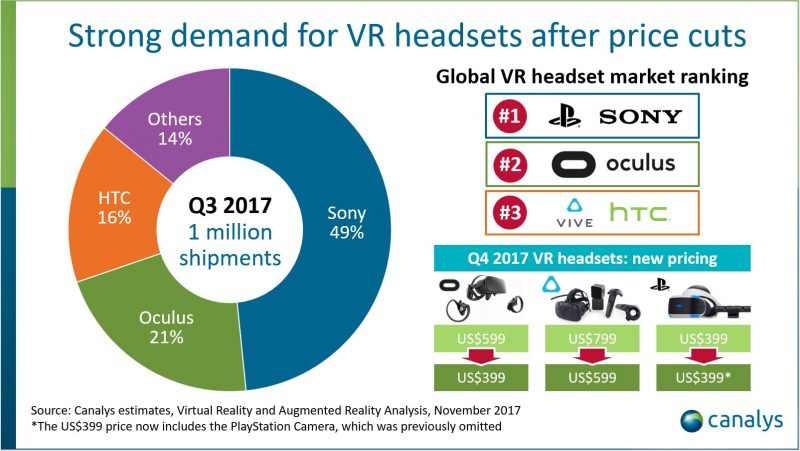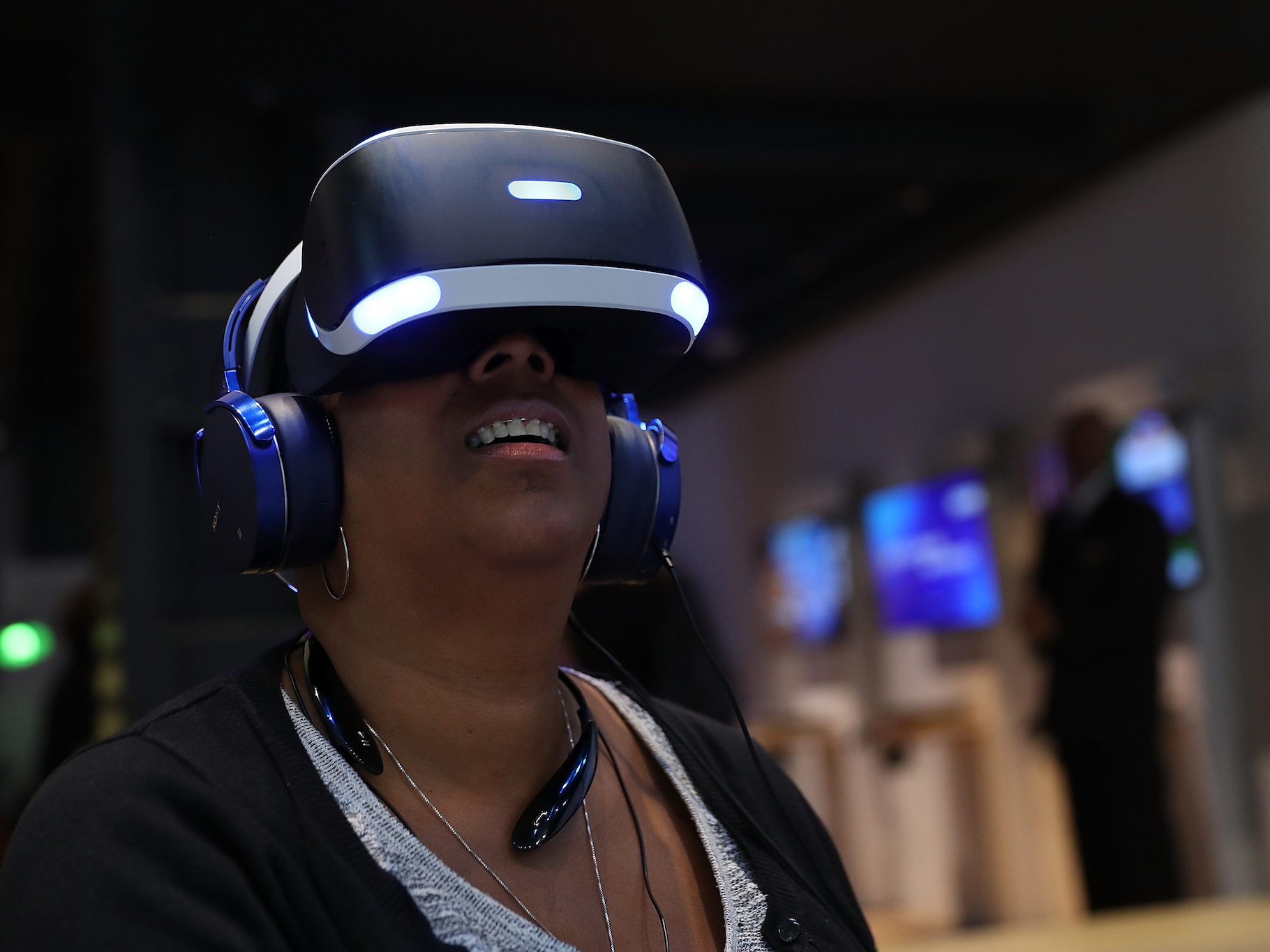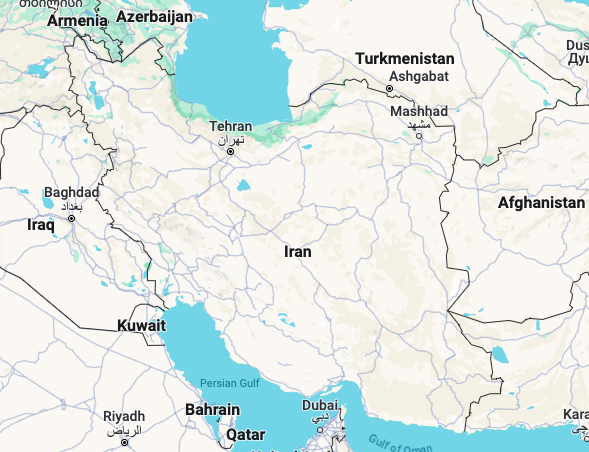- Virtual reality headsets have reached 1 million units shipped in a single quarter for the first time.
- Sony has taken the lead, but others – most notably Facebook and HTC – are following.
Virtual reality (VR) headsets aren’t a huge market – at least not yet – but they have hit a milestone nonetheless.
According to new research from analyst firm Canalys, the combined number of VR headsets shipped globally has surpassed 1 million units in a single quarter for the first time ever in 2017’s third quarter.
There are a number of manufacturers making all sorts of VR headsets, but Sony is by far the biggest player; its PlayStation VR headset alone got into the hands of 490,000 new customers, which means 49% of Q3’s entire pie.
Facebook’s Oculus and the HTC Vive take the vast majority of the remaining half, with an estimated 210,000 (21%) and 160,000 (16%) units sold respectively.

Sony's PlayStation VR is in a fortunate position; it's far more capable than mobile VR headsets like Google's Daydream or Samsung's Gear VR, but it also relies on Sony's extremely successful PS4, which has shipped nearly 70 million units.
Similarly (or more) demanding headsets, like the Vive and the Rift, require powerful, expensive computers to run, and have a comparatively smaller catalogue of games to play with, too (although they fare better in the non-gaming realm, with different kinds of virtual reality experiences).
Sony also managed to boost sales thanks to the relatively low $399 (£320) price, which was soon matched by Oculus and is one of the reasons why Canalys believes sales of its Rift spiked.
"VR adoption in the consumer segment is highly dependent on price, and Oculus' strategy of lowering prices has definitely helped drive adoption," said Canalys Research Analyst Vincent Thielke.
But there's also excitement over what's to come: "Hugo Barra is betting on his next product, the US$199 Oculus Go standalone headset, to reach more users next year," Thielke said. "The Go will excite first-time users, but driving adoption beyond social media will be a challenge."











